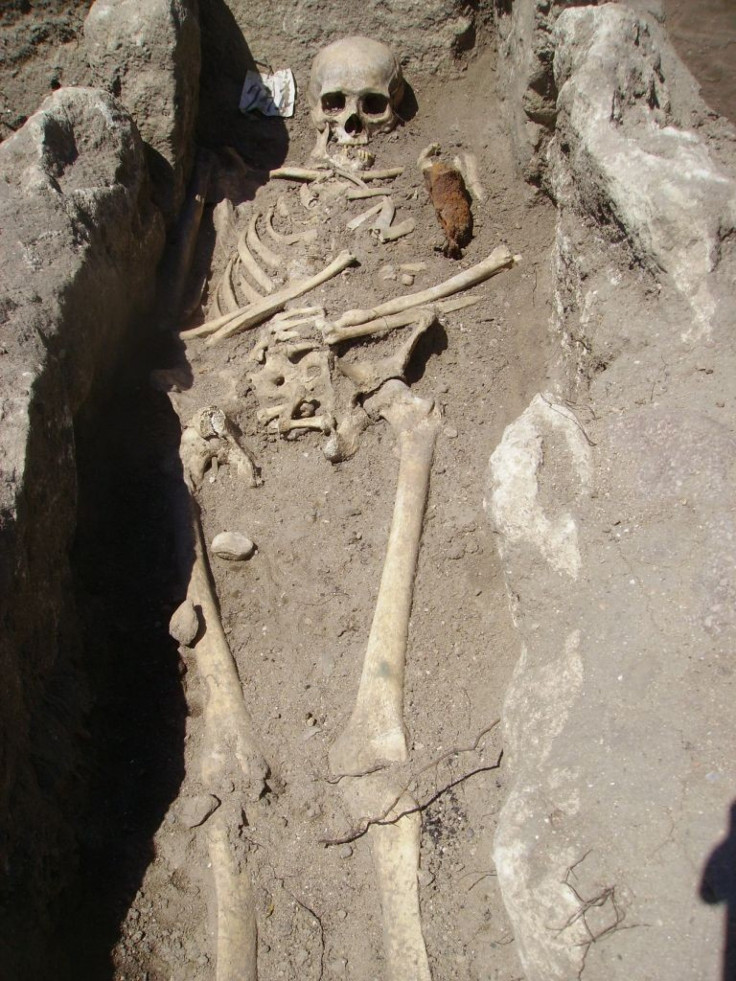Medieval Knight Skeleton Discovered in Britain; Found On Site of Middle Ages Tournament Grounds

Fresh off the archeological triumph of finding the remains of King Richard III and after debating a new theory about Stonehenge’s prehistoric significance, British archaeologists now think they’ve discovered the skeleton of a knight who died in the 13th century.
They think the gravesite -- marked with a large sandstone slab, ornate sword and the carvings of a Calvary cross, according to the BBC -- belongs to Robert Morley, a nobleman who was killed during a tournament in 1388. The condition of the remains indicates he was heavily muscled and in his mid-20s. There’s also evidence of severe injuries from earlier fighting contests.
Morely, if that who the skeleton belonged to, recovered from an ax wound to the head and an arrowhead buried in his chest before being killed when a sword sliced through his nose and jaw. Researchers found that the man was lying on the ground when the fatal blow was struck.
“This find has the potential to be one of the most significant and exciting archaeological discoveries in the city for many years, providing us with yet more clues as to what life was like in Medieval Edinburgh,” said Richard Lewis, the city of Edinburgh’s council culture convener.
The excavation area is known to have been the site of an 18th century old high school and a 16th century high school for royals, and 300 years before that, a monastery. Diggers have been clearing the site in recent weeks in preparation for the construction of a new university.
Archaeologists originally discovered the skeleton during a 1997 study but have only recently been afforded with the technology to examine it. Gordon Ewart, of Scotland’s Kirkdale Archaeology, told the Telegraph the nobleman also lost teeth during his life, perhaps by falling from a horse.
"At first we had thought the arrow wound had been fatal but it now seems he had survived it and may have had his chest bound up,” Ewart said. “This is a remarkable and important set of discoveries.”
© Copyright IBTimes 2024. All rights reserved.





















